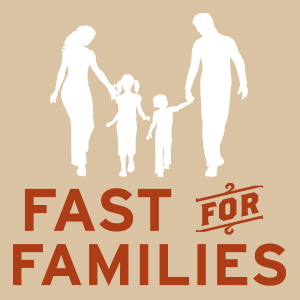On November 12, 2013, immigrant rights, labor, and faith leaders announced an action called “Fast for Families: A Call for Immigration Reform and Citizenship.” As the Service Employees International Union (SEIU) put it, “Leaders committed to a daily fast in front of the U.S. Capitol and at locations across the country to send a clear and visible message to Congress about the moral crisis caused by our country’s broken immigration system and its impact on millions of families.” Fasts are not a new protest strategy, and relying upon family rhetoric is certainly not a new approach in the immigrant rights community. Is there anything unique about this fast, this issue, and this historical moment? As has been acknowledged many times, President Obama has both championed immigration reform, while simultaneously deporting more people than any previous administration in the history of the United States. Immigrants and immigrant rights advocates have angrily challenged Obama for his immigration policies, and for some, it seems that staging a fast in the traditions of King, Chávez and Gandhi is the only way to compel action.
The Fast for Families has drawn national media attention from outlets like Democracy Now! and the Huffington Post, and it has gained support from an array of groups and individuals. Even the Obamas stopped by the fasting tent on the National Mall in Washington, DC to offer support. What is the “clear and visible message” that the fasters are trying to send? According to the Fasters’ Declaration, they fast in order to promote “commonsense immigration reform.” They state, “We will fast and pray until the bonds of families are no longer broken. We will fast and pray until immigration reform is no longer a notion, but a reality. We will fast and pray until citizenship is no longer a dream for 11 million aspiring Americans.” The fasters want the House of Representatives to pass S. 744, the “Border Security, Economic Opportunity, and Immigration Modernization Act,” which in June of this year, the Senate approved.
The bill has unsurprisingly stalled in the House of Representatives. Democrats have accused House Speaker John Boehner of preventing the reform from even getting a chance in the House. Boehner has recently signaled that he may be changing his tune, but with a “pathway to citizenship” built into the bill, many Republicans have vowed not to support it. If Republicans hate this bill so much, and immigrant rights advocates are risking death by starving themselves to support it, the bill must be pretty good for immigrants, right?
The bill is complex, and numerous groups have attempted to boil it down to its main parts, including the American Immigration Council, which provided this summary. My personal favorite summary is that provided by the Moratorium on Deportations Campaign, a Chicago-based collective that seeks the end to all deportations, detentions and criminalization of immigrants (they also seek the end of national borders). Their comprehensive videos in English and Spanish, “Immigration Reform 101,” paint a sobering image of the proposed reform. In brief, S. 744 would provide a pathway to citizenship for only an estimated 7 million of the 11 million undocumented people living in the United States. Those who qualify would be eligible for what is called “Registered Provisional Immigrant” (RPI) status. Those who qualify for the DREAM (Development Relief and Education for Alien Minors) Act, and some agricultural workers would be given a somewhat accelerated pathway toward citizenship (at least 5-10 years after applying for RPI status). These two groups would not have to wait for the so-called “triggers” that must be in place before other people with RPI status can begin the naturalization process. Most undocumented people will not be allowed to apply for naturalization until several militarization (“security”) measures have been successfully put in place and evaluated. Over $46 billion has been proposed to further militarize US national borders, especially the Mexico-US border. If those measures would pass the very ambiguous barometer for success, then that triggers the pathway to naturalization—assuming those who originally qualified haven’t found themselves unemployed, or in some other violation of law that would preclude their qualification. By some estimates, those who qualify after this extended process can expect around a 20-year process before they will be US citizens. For those who don’t qualify, both the four million who are immediately excluded and the others that might find themselves excluded somewhere along the way, there is no hope of every attaining citizenship. Among other provisions, the bill also does a lot to further criminalize future clandestine crossings, creates new categories of temporary visas, and addresses issues such as human trafficking. The bill would turn future migration preferences toward those with desired labor skills and away from family reunification by eliminating some of the family categories that one can currently use for sponsorship (i.e., adult siblings and married offspring).
If S. 744 is what’s being proposed as “commonsense” reform, will families actually be helped? And if the answer to this is, at least in part, no, then what’s the Fast for Families really all about? As Dana Cloud showed in her 1998 essay, “The Rhetoric of Family Values,” “family” and “family values” function as powerful ideographs that have enduring rhetorical power in the US public sphere. In discussing the specific context of the 1990s, she revealed how the use of family values rhetoric positioned successful and middle class black families against the so-called underclass plagued by a culture of poverty. I fear the family rhetoric in the Fast for Families campaign operates similarly—certain members of certain families who do everything right will be worthy of an arduous and extended pathway to citizenship, while others won’t be considered families at all (the campaign’s logo clearly indicates what counts as a family), and the rest, “the unworthy,” will be left behind.



